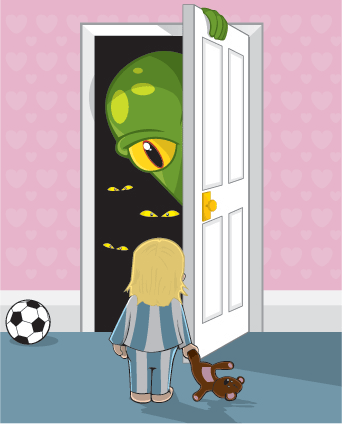 The golden retriever stood still. I could feel my six-year-old son, Evan, getting tense, his hand gripping my leg. The breeder motioned Evan to come closer. In the past, Evan had been terrified of dogs. Our neighbours had an untrained golden retriever that would come bounding out to greet us. When Evan was learning to walk, the dog would knock him off his feet, causing him to fear large dogs.
The golden retriever stood still. I could feel my six-year-old son, Evan, getting tense, his hand gripping my leg. The breeder motioned Evan to come closer. In the past, Evan had been terrified of dogs. Our neighbours had an untrained golden retriever that would come bounding out to greet us. When Evan was learning to walk, the dog would knock him off his feet, causing him to fear large dogs.
Aware of Evan's fear, the breeder brought this new dog to our house for Evan to touch. I urged Evan to inch closer until he was almost within reach. The golden retriever remained motionless. Evan reached out tentatively to touch the dog's back, but then quickly withdrew his hand. The breeder encouraged him to try again. Finally, Evan began to stroke the dog.
“Mom, I like this dog,” said Evan. “I don't think he'll knock me over.” The breeder was so moved by the experience that he offered two-year-old Boomer to us for free.
All children have fears, whether it's of the dark, bugs or monsters in the closet. Some children easily outgrow them, but others take longer. Coping with a child's anxiety can be challenging. I confess that I sometimes say to my children: “Come on, don't be silly. There's nothing to be afraid of!” But I, too, can fill the house with squeals when confronted with a large spider.
Fear can be beneficial, especially if the threat is real. The adrenaline starts pumping and you feel energized to run or face your foe head on. Some phobias are irrational and harmless, such as when I panic around spiders.
At its worst, fear is debilitating and can cripple a child, completely taking over his life. Anxiety disorder is one of Canada's most common illnesses. Children with serious phobias may require medical support or supervision.
When helping children conquer their fears, be patient and positive:
• Talk to your children about what they're afraid of and help them understand what's real and what's imagined. For example, take them to the closet during the day and show them that nothing scary is in there.
• Use play acting to encourage children to confront terrifying situations. Help them learn words to speak to themselves and actions they can take to become calm.
• When facing fears head on, be relaxed and reassuring, letting your children know you won't leave.
• Help them to memorize simple Bible verses to use when they are afraid.
I'm grateful that God is with our children, especially when they are afraid. The Bible tells us that “God is our refuge and strength, an ever-present help in times of trouble” (Psalm 46:1). Scripture also assures that God “will never leave [them] nor forsake [them]” (Joshua 1:5). When they are filled with fear and anxiety, they can trust God to bring them peace.
 Major Kathie Chiu is the Corps Officer and Executive Director of The Caring Place Ministries, Mountain View Community Church, Maple Ridge, B.C.
Major Kathie Chiu is the Corps Officer and Executive Director of The Caring Place Ministries, Mountain View Community Church, Maple Ridge, B.C.









Leave a Comment